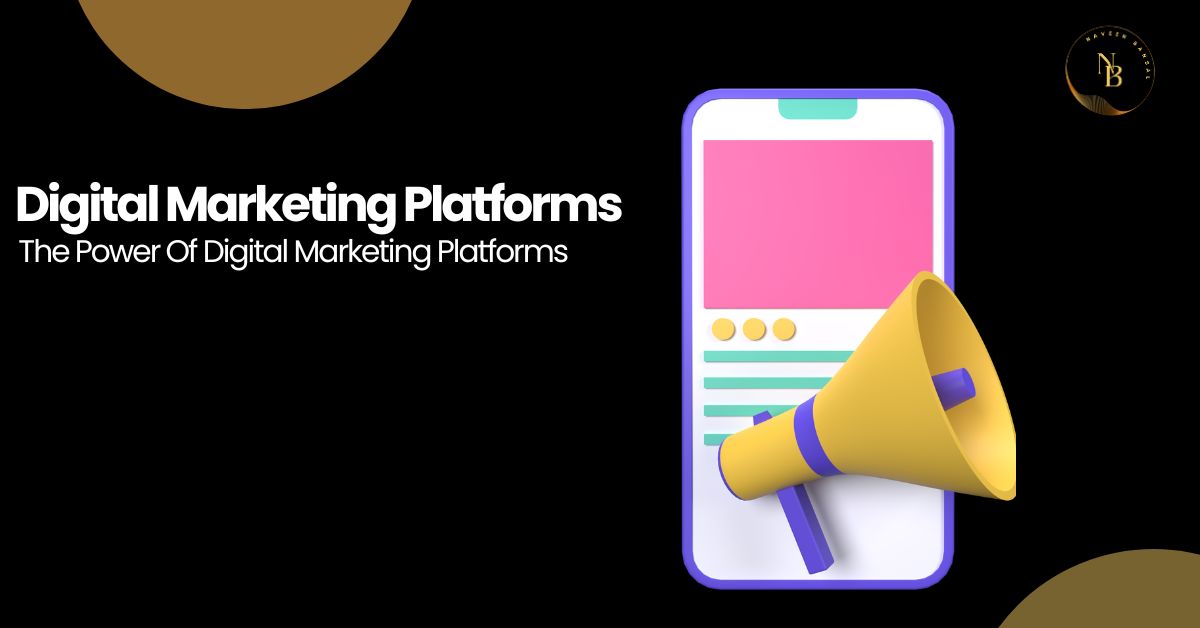In today’s digital age, the power of digital marketing cannot be overstated. With the increasing reliance on the internet and technology, businesses must leverage digital marketing strategies to reach and engage their target audience effectively. In this article, we will explore the concept of digital marketing, the power of its various channels, and the benefits it brings to businesses. Digital marketing platforms encompasses all marketing efforts that utilize electronic devices and the internet. It involves various channels and strategies aimed at promoting products, services, or brands to a digitally connected audience. As more and more people spend their time online, digital marketing has become a powerful tool for businesses to connect with potential customers and drive growth.
Digital marketing comprises various channels, each with its unique strengths and advantages. Let’s explore some of the most powerful digital marketing channels:
Stay ahead in the digital landscape with powerful marketing platforms with Naveen Bansal Digital Marketing Consultant in India.
The Power of Digital Marketing Channels
Search Engine Optimization (SEO)
SEO focuses on improving a website’s visibility and ranking in search engine results. By optimizing website content, keywords, and technical elements, businesses can increase organic traffic and attract highly targeted visitors who are actively searching for relevant products or services.
Pay-Per-Click Advertising (PPC)
PPC advertising allows businesses to display ads on search engine results pages or other platforms and pay only when a user clicks on the ad. It offers instant visibility, precise targeting options, and the ability to control ad spend, making it an effective channel for driving traffic and conversions.
Social Media Marketing
Social media platforms like Facebook, Instagram, Twitter, and LinkedIn provide opportunities for businesses to connect and engage with their audience. Social media marketing involves creating and sharing content, running targeted ads, and fostering relationships with customers, all of which contribute to brand awareness, customer loyalty, and lead generation.
Email Marketing
Email marketing allows businesses to nurture relationships with leads and customers, deliver personalized content, promote products or services, and drive conversions. Email marketing is a powerful channel for building customer loyalty and generating repeat business.
Content Marketing
Content marketing revolves around creating valuable and relevant content to attract and engage the target audience. It includes blog posts, infographics, and more. Content marketing helps establish businesses as industry authorities, increases brand visibility, and drives organic traffic and lead generation.
Influencer Marketing
Influencer marketing leverages the reach and influence of individuals with a dedicated following to promote products or services. Businesses collaborate with influencers to create sponsored content that resonates with their audience, driving brand awareness, credibility, and customer trust.
Video Marketing
Video marketing involves creating and sharing videos to convey messages, educate, entertain, or promote products or services. Videos have a high engagement rate and are an effective way to communicate brand stories, demonstrate products, and connect with the audience emotionally.
Mobile Marketing
Mobile marketing targets users on mobile devices, such as smartphones and tablets. It includes mobile-responsive websites, mobile apps, SMS marketing, and location-based advertising. As mobile usage continues to rise, businesses must optimize their marketing efforts for mobile users to reach them effectively.
Unleashing the Power of Digital Marketing Platforms with Naveen Bansal Digital Marketing Consultant in India.
Benefits of Digital Marketing
Digital marketing offers several benefits for businesses:
Increased brand visibility:
Digital marketing enhances brand visibility by reaching a wider audience across multiple channels.
Targeted audience reach:
Digital marketing enables businesses to target specific demographics, increasing the chances of reaching the right audience.
Higher customer engagement:
Interactive digital marketing strategies facilitate direct customer engagement, building relationships and fostering loyalty.
Improved conversion rates:
By delivering targeted messages and personalized experiences, digital marketing increases the likelihood of conversions and sales.
Cost-effectiveness:
Digital marketing often requires lower upfront costs compared to traditional marketing methods, making it more accessible to businesses with limited budgets.
The Role of Digital Marketing in Business Growth
Digital marketing plays a crucial role in business growth:
Lead generation:
Through various digital marketing channels, businesses can generate leads, expand their customer base, and increase their chances of conversion.
Customer acquisition and retention:
Digital marketing strategies help businesses acquire new customers and retain existing ones through targeted engagement and personalized experiences.
Brand building:
Digital marketing enables businesses to establish and promote their brand identity, building trust and credibility among their target audience.
Competitive advantage:
A well-executed digital marketing strategy can give businesses a competitive edge by reaching the right audience at the right time, outperforming competitors in the digital space.
Conclusion
Digital marketing has revolutionized With its wide reach, targeted advertising capabilities, and measurable results, digital marketing offers immense power and opportunities for businesses to grow and succeed. By leveraging various digital marketing channels, businesses can increase brand visibility, engage their audience, generate leads, and achieve their business goals. Embracing the power of digital marketing is no longer an option but a necessity for businesses in the digital age.

